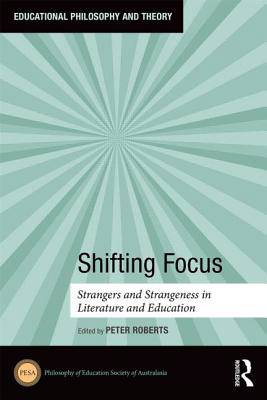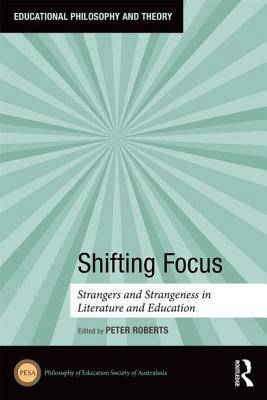
- Afhalen na 1 uur in een winkel met voorraad
- Gratis thuislevering in België vanaf € 30
- Ruim aanbod met 7 miljoen producten
- Afhalen na 1 uur in een winkel met voorraad
- Gratis thuislevering in België vanaf € 30
- Ruim aanbod met 7 miljoen producten
Shifting Focus
Strangers and Strangeness in Literature and Education
Omschrijving
There is a long history of interest in 'strangers' and 'strangeness' in the West. Literature lends itself particularly well to an exploration of the strange in its richly varied forms, having often contained portraits of outsiders. These portraits depict people who are strange in their unusual appearance or demeanour, their out-of-the-ordinary actions or attitudes, their defiance of convention, their marginalisation from society, or their resistance to dominant structures and practices, as well as those who come from strange worlds.
Each contribution in this collection focuses on a novel, story or play. The essays engage works by Shelley, Dickens, Charlotte Brontë, Dostoevsky, Conrad, Grazia Deledda, Kafka, Beckett, and Camus, all of whom have much to offer the central theme of 'strangers and strangeness'. This book demonstrates that there is considerable value in encountering, experiencing and reflecting upon that which is strange. Education is, amongst other things, a process of learning to see the world otherwise, and literature has the capacity to promote this form of human development. This book allows readers to re-experience the ordinary, and to learn that what at first seems strange is rather closer to us than we had previously imagined.
This book was originally published as a special issue of Educational Philosophy & Theory.
Specificaties
Betrokkenen
- Uitgeverij:
Inhoud
- Aantal bladzijden:
- 122
- Taal:
- Engels
- Reeks:
Eigenschappen
- Productcode (EAN):
- 9781138852822
- Verschijningsdatum:
- 26/02/2015
- Uitvoering:
- Hardcover
- Formaat:
- Genaaid
- Afmetingen:
- 175 mm x 246 mm
- Gewicht:
- 384 g

Alleen bij Standaard Boekhandel
Beoordelingen
We publiceren alleen reviews die voldoen aan de voorwaarden voor reviews. Bekijk onze voorwaarden voor reviews.










